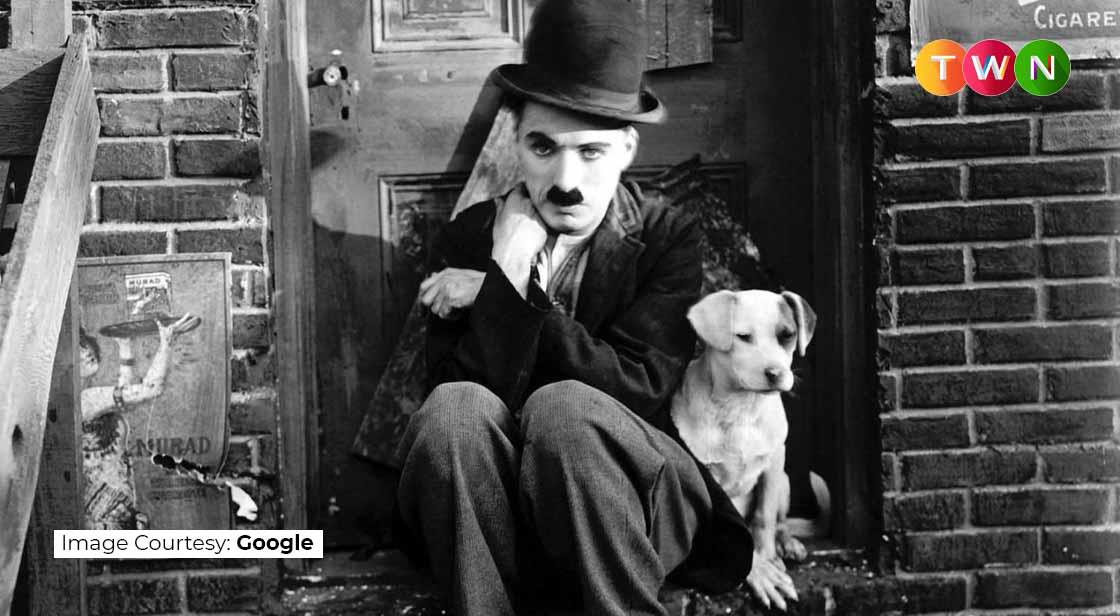The Man Who Never Failed To Make Us Smile

Blog Post
Charlie Chaplin, the first name that comes to our mind when speaking of the first stand-up comic. For over 75 years, he had been a successful and innovative filmmaker. We are all familiar with Charlie as a well-known actor, but only a few of us are aware of his troubles. So, there you have it, Charlie Chaplin's difficult life tale. #ThinkwithNiche.
Charlie Chaplin Success Story
The first image that comes to mind when we hear the name ‘Charlie Chaplin’ is of a short guy dressed in a coat, a pair of large trousers, shoes, a little mustache, and a black hat. Charlie Chaplin was a humorous British actor who rose to prominence during the silent cinema period of the twentieth century. Many great performers have come and gone throughout history, but he is a legacy that has been passed down through the years. The Tramp is a character that will live on in perpetuity. He was the first stand-up comic. For over 75 years, he had been a successful and innovative filmmaker. His accomplishments and awards are well-known, but his troubles are not. So, there you have it: Charlie Chaplin's undiscovered narrative.
Early Life Story
Charles Spencer Chaplin was born on April 16, 1889, in London, and his life story is a real rags-to-riches tale. Charlie Chaplin was up in a world of poverty, suffering, and extreme loneliness. Charlie's father had a very minor impact on his life. His father was a talented singer and actor. The man, on the other hand, had a better connection with booze. So, in London, Charlie spent his early years with his mother and brother Sydney. Charlie's mother was the only one who could feed them by performing on stage and singing, which was her major source of money. His mother was a stand-up comedian as well as a theatre voice-artist. She would put on mini shows for her son to make him laugh. Despite the fact that money was scarce, the Chaplin home was full of joy. She lost her voice and was unable to support her two sons as a result. Their situation deteriorated. When they went, they had nowhere to stay. As a result, Charlie would sleep on park benches on occasion and survive by stealing food from street vendors.
Charlie and his brother would dance and perform on the streets for a few pennies. His mother's mental disorder had become widely known. When Charlie was locked up in a mental facility, she had nowhere to go. His mother became unwell and was unable to care for her sons any longer. After his mother died in the hospital and his brother enrolled in the navy, Charlie was left alone. It was the most difficult period of his life. In his father's house, Charlie had a lot of issues. His father succumbed to alcoholism and died of cirrhosis of the liver two years later, at the age of 37. He had to sleep on the streets and fend for himself. At the time, he was just 14 years old. He was poorer and more alone than he had ever been. Education was also thrown out the window.
Hard Earned Success Story
Charlie looked up to his mother as a role model. He became a comedian because of her. Her laryngitis had caused her voice to break on stage one day, and it all began with her. At the age of thirteen, Charlie dropped out of school to pursue a career in show business. As a member of the Children's Dance Group, he began his dancing career.And to make ends meet, he worked a number of jobs, never losing up on his dream. He did his first significant job when he joined the clog-dancing troupe The Eight Lancashire Lads. Throughout 1899 and 1900, he travels to English music halls with her. He signed up with a theatrical agency in London's West End at the age of 14, shortly after his mother relapsed. The manager evaluates his dedication, and he soon appears on stage as a newsboy in H.A Sainsbury's Cockayne's Jim. However, the show was a failure, and it ended after two weeks. Following that, Charlie acted as a pageboy in a Sherlock Holmes performance. From there, he joined Casey's Court Circus, a vaudeville company. In 1908, he formed a partnership with the Fred Karno pantomime ensemble. As the Drunk in the comic routine A Night in an English Music Hall, he became one of the show's stars. Chaplin's first experience of the United States comes with the Fred Karno company when film producer Mack Sennett offers him a contract for $150 per week. Charlie made his cinematic debut in 1914. Charlie left Sennett in 1915 to work for the Essanay Company. Chaplin created 14 pictures in his first year with the studio. Chaplin had a reputation as a ruthless perfectionist as a result of his work.
The 1940s were a tumultuous decade for Chaplin, and his popularity dwindled quickly. His involvement in a paternity dispute and marriages to much younger women generated controversy, and he was accused of communist inclinations. An FBI investigation was underway, and Chaplin was forced to flee the country and reside in Switzerland. But this never detracts from Chaplin's objectives. Charlie returned to the United States in 1972, at the end of his life, to accept honorary academy honors. Despite facing several problems as a child owing to a lack of parental support and poverty, Charlie Chaplin became a superstar and won an Academy Award. His transformation from a destitute man to a world-famous comedian would undoubtedly inspire and assist us in achieving success in our lives by transforming our dangers into opportunities.
Conclusion
Charlie Chaplin's entire youth was spent in a condition of turmoil. It did, however, help him. His concerns were no longer bothering him. Most of us would not be able to stand witness to what he has seen. Life's challenges robbed him of his childhood. He did, however, find refuge in humor. His goal was to hide behind the tears of a clown. He'd be on his way from the theatres to the screen in no time. The movie's sound was approaching, but he didn't require it. He had a deafeningly quiet stage presence. He probably communicated more without saying anything than the rest of us could. He finished a comedy picture with a tear-jerking message the first time he employed decent dialogue. He only wants to spread love. Even though no one knew about it, his suffering became a source of amusement for the rest of the world. He once stated that he had a lot of hardships in life, but his lips never expressed anything about it. Through his silent films, he expressed his desire for a better world. His performances are renowned not just for the costumes he wears, but also for the tale that goes with them.
You May Like
EDITOR’S CHOICE












